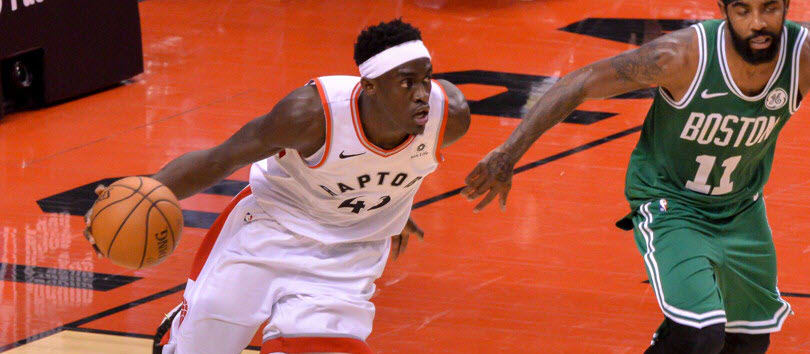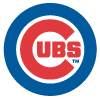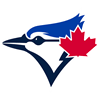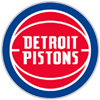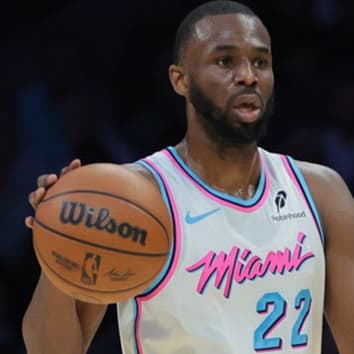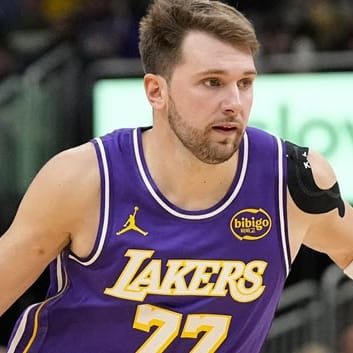Here at Numbers Game, we love awards. With the season now in the rear-view, it's time to hand out our own end-of-season awards -- with a fantasy spin, of course.
The idea is simple: Assign all of the NBA's typical end-of-season awards, except instead of naming the NBA's regular season MVP, Most Improved Player, Coach of the year, etc., we're awarding the the most deserving fantasy players.
With that in mind, the fantasy MVP isn't necessarily the best overall producer. It's the player who played the biggest role in bringing success to his rosters.
The fantasy Coach of the Year could actually be a bad NBA coach, but we're willing to look past that if he provided stable rotations and gave his stars lots of minutes. Steals and blocks are not necessarily good signals of elite NBA defense, as both can reward players who take unnecessary risks that hurt their teams as often as help them; nonetheless, the fantasy Defensive Player of the Year award is based 100% on production in those two categories.
To keep things exciting, we'll build as we go, starting with Most Improved Player and ending with MVP. We'll close with a list of the 2018-19 All-Fantasy first, second, and third teams.
There will be no fantasy Sixth Man, because the award doesn't really make sense in a fantasy context. There also will be no fantasy All-Rookie teams because there are not nearly enough deserving rookies to complete even one five-man squad, let alone two.
Most Improved Player: Paul George, Thunder
Runners up: Brook Lopez, Bucks; Danilo Gallinari, Clippers
This was a crowded category. In addition to the names mentioned above, we saw unexpected breakouts from the Kings' backcourt of De'Aaron Fox and Buddy Hield, and bounce-back campaigns from the Raptors' Kawhi Leonard and Mike Conley.
The Wizards' Bradley Beal and the Trail Blazers' Jusuf Nurkic were among the group of players that made massive leaps. Players like Miami's Justise Winslow and Phoenix's Kelly Oubre had a couple of months during which they would have been runaway winners, but those stretches were not sustained enough to warrant serious consideration.
As with the MVP and All-Fantasy teams below, I began my analysis for this category by running a quick difference-of-two-squares algorithm – my go-to tool for comparing the jump from 16th to third (Paul George) to the jump from 108th to 31st (Brook Lopez). Except, where the MVP algorithm compares players' performance to their ADPs, the MIP algorithm compares players' performance to their previous season. As far as that algorithm was concerned, George won this award by a hefty margin. The gap between George and Lopez was similar to the gap between Lopez and Jeremy Lamb, who improved from 104th last season to 54th this season.
The computer's answer also holds up to human inspection. The NBA, and by extension fantasy basketball, is fortunate to have a ton of marquee talent at the top of the league right now. Moving up within the top 15 or so is incredibly hard, and George plowed through those entire ranks this season. He crushed his career-highs in points (+4.3), rebounds (+0.6; +2.5 compared to 2017-18), threes (+0.7) and steals (+0.2). Lopez and Gallinari had fantastic seasons, but they couldn't match the leap George took this season.
Pascal Siakam, who we'll get to later, was ineligible for this category. Rookies are ineligible for the NBA's MIP award because it's their first season in the league – they have no body of work to improve upon. Similarly, Siakam was not in the fantasy picture before this season, so "most improved" doesn't really apply.
Coach of the Year: Billy Donovan, Thunder
With Tom Thibodeau out of the league, the COY race was wide open. Steve Kerr did his part, by keeping all three of Stephen Curry, Kevin Durant, and Klay Thompson inside the top-30 in minutes per game and minimizing their rests. On the other hand, he was inconsistent with his backups, keeping us guessing about who was the best play when Draymond Green or DeMarcus Cousins sat out.
Donovan provided what fantasy managers crave: substantial, reliable workloads within a predictable rotation. He had four players finish in the top-50 in minutes per game. His stars, Russell Westbrook and Paul George, were both in the top-four. He oversaw the ascension of one of the season's best waiver wire pickups in Jerami Grant. And even his sub-stars, Grant and Steven Adams, both played 80 games and averaged a hefty 33 minutes per contest.
Donovan's backups were predictable. Nerlens Noel averaged 30 minutes, 16 points, and 11 rebounds in Adams' two missed games, compared to 13 minutes, five points, and five rebounds when Adams was healthy. Dennis Schroder started whenever Westbrook missed time.
Sure, it would have been nice if Schroder had been a better producer with his nearly 30 minutes per game, and it would have been better if Donovan was able to coach a fifth starter into fantasy relevancy. But neither of those failings can be blamed on Donovan, and both actually speak to the ways in which Donovan tried to help out the fantasy community all season long.
Schroder didn't produce, but he had a large and reliable workload as the Thunder's consistent sixth man. Patrick Patterson, Marcus Morris, and the rotating platoon of shooting guards each got a fair chance at earning the fifth starter role – not just a moment-in-the-sun before someone else took their turn. It's not Donovan's fault that none of Terrance Ferguson, Abdel Nader and Hamidou Diallo never truly rose to the occasion.
Defensive Player of the Year: Andre Drummond, Pistons
Runners up: Myles Turner, Pacers; Mitchell Robinson, Knicks
Honorable Mention: Robert Covington, 76ers/Timberwolves
DPOY is usually the easiest award to determine. Just sort all players by "stocks" (steals plus blocks) and pull the top names. This year, however, there were a few added wrinkles. Anthony Davis was on track to run away with this season's fantasy DPOY, but he disqualified himself with The Saga, missing half his post-All Star break games and averaging just 21.1 minutes in the games he did play.
Robert Covington would have been at least a runner up, averaging 2.1 steals and 1.3 blocks for 3.46 stocks, but his season-ending injury came too early in the season.
Drummond returned value at his ADP. He was drafted as a mid-second-round pick, and he returned mid-second-round pick value. But mathematical formulas to determine season-ending rank always underrate obvious punt players like Drummond or Russell Westbrook. Managers draft those players knowing that it locks them into a punt-free throw percentage build, or a punt-turnovers build, and draft accordingly. In a punt-FT build, Drummond provided top-five overall value, a steal (get it?) for his ADP.
Both Drummond and Turner averaged 3.5 stocks per game and were huge bargains on draft day. But Drummond gets the nod here because of his historically rare mix of steals and blocks. Only 60 times has a qualified player averaged 1.5 steals and 1.5 blocks in a season. Drummond's 1.7 and 1.7 was matched just 24 times. Eight of those 24 were courtesy of Hakeem Olajuwon. David Robinson, Julius Erving, and Ben Wallace also did it several times. That's Hall of Fame company.
Fantasy Rookie of the Year: Mitchell Robinson, Knicks
Runners up: Deandre Ayton, Suns; Jaren Jackson, Grizzlies
As I've repeatedly hammered home in articles, Reddit AMAs, and tweets, drafting a rookie for your fantasy team is usually a bad idea. They tend to cost too much in drafts, it's rare that more than one or two finish inside the top-80, and the fantasy community's track record for projecting who will finish that high is abominable.
Luka Doncic is awesome, I'm excited to watch him for years to come, and he'll be a fantasy staple for the next generation. The same can be said about Trae Young. That said, in this case the calculus is simple. Due to their lofty ADPs, fantasy teams were better off drafting someone else. If your manager regrets drafting you, you are not rookie of the year. End of discussion.
Robinson went undrafted and finished the season inside the top-50, but those two facts alone don't do justice to his fantasy impact. Because Robinson went undrafted and made his way onto rosters through waivers, he was doing no harm during the early part of the season. Therefore, his season averages are misleading when considering his fantasy value. He was only on the fantasy radar after he returned from his groin injury in mid-January. From that point forward, he was a top-30 producer, and he climbed inside the top-15 after the All-Star break. On top of that fantastic bottom-line standing, he provided the most help in blocks -- fantasy's scarcest category. Robinson was the only rookie who might have actively turned around a manager's season.
Ayton is the top runner-up because he bucked the trend of rookies being terrible fantasy picks. The ability to provide fair value at his lofty draft cost is outstanding, as far as rookies are concerned.
Meanwhile, Jackson was nearly a 1-1-1 guy for two-thirds of the season, he was undrafted in most standard leagues, and once he was lost to what would be a season-ending injury, it was immediately clear that he might miss the rest of the season, thereby freeing managers to drop him quickly. By the low standard of fantasy rookies, Jackson had one of the most helpful seasons.
Fantasy MVP: Pascal Siakam, Raptors
Runners up: Danilo Gallinari, Clippers; Brook Lopez, Bucks
Gallinari, Lopez, and third-runner-up Nikola Vucevic all had campaigns good enough to win this award outright in other years. My starting point for this award is to consult a straightforward difference-of-two-squares algorithm that helps me compare a player's final performance to his ADP.
The algorithm helps me to answer this question: Which is more valuable, getting No. 1 overall production from the 10th overall draft spot, or getting 30th overall production from the 120th draft spot?
Gallinari's score there was higher than most seasons' winners. Lopez and Vucevic had scores that made them automatic All-Fantasy First Team selections. Combined with playing 80-plus games, that is enough to warrant serious MVP consideration, and enough to win the award in some seasons. But this was the season of Siakam.
As far as I'm concerned, there are only two 2018-19 fantasy storylines we'll remember years into the future: James Harden's ascendance and Pascal Siakam's emergence. Harden's historic season was incredible, but he was drafted accordingly. And while no managers are likely to complain about having rostered Harden this season, I'm not aware of any mathematically-based ranking system that has him as this season's No. 1 or 2 performer, meaning he only matched or failed to match his ADP. When drafting Harden, you got what you paid for. With Siakam, you got a top-40 performer for free – that's how you win fantasy leagues.
Siakam's preseason value was so low that he literally didn't have an ADP. FantasyPros has data for the top-198 from Yahoo, the top-200 from ESPN, and the top-182 from CBS. Siakam is not listed among any of the three sites. That algorithm I just mentioned, in which Gallinari had one of the highest scores in recent years? It doesn't even work for Siakam, because it needs an ADP as one of the inputs. If we give Siakam an ADP of 201, just for fun, then Siakam's score on that algorithm would be 50 percent higher than Gallinari's and by far the best I've seen since I started writing about fantasy in 2013.
There was no substitute for getting Siakam this season. Either you got a free top-40 player, the equivalent of trading the last pick in your draft for an extra fourth-rounder, or you didn't. Siakam was not the best fantasy producer in 2018-19, but he's the runaway MVP.
All-Fantasy First Team
G: James Harden, Rockets
G: Bradley Beal, Wizards
F: Pascal Siakam, Raptors
F: Danilo Gallinari, Clippers
C: Brook Lopez, Bucks
All-Fantasy Second Team
G: Stephen Curry, Warriors
G: Buddy Hield, Kings
F: Paul George, Thunder
F: Nikola Vucevic, Magic
C: Jusuf Nurkic, Trail Blazers
All-Fantasy Third Team
G: Russell Westbrook, Thunder
G: D'Angelo Russell, Nets
F: Jerami Grant, Thunder
F: Montrezl Harrell, Clippers
C: Mitchell Robinson, Knicks


